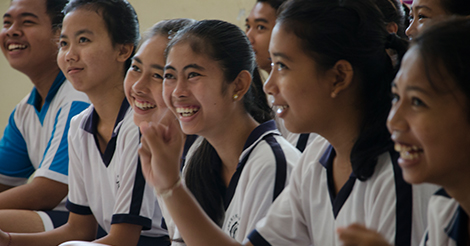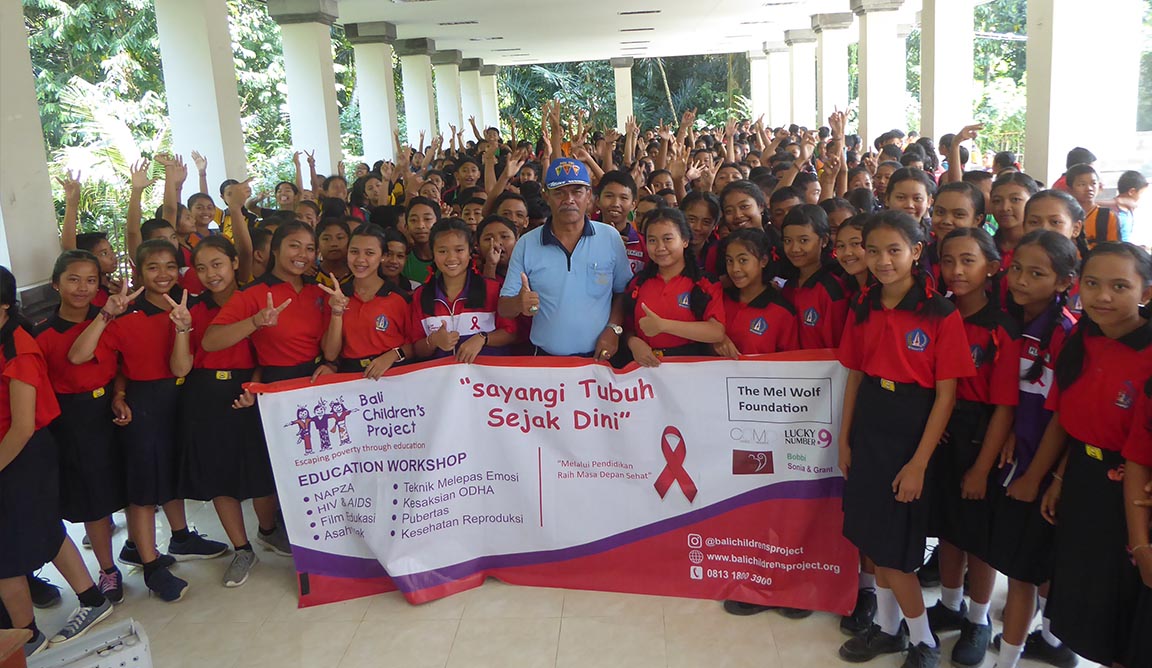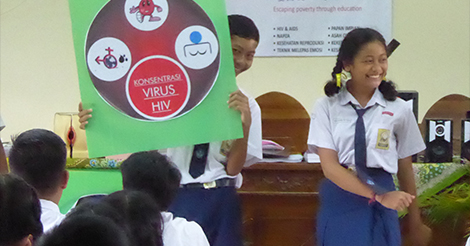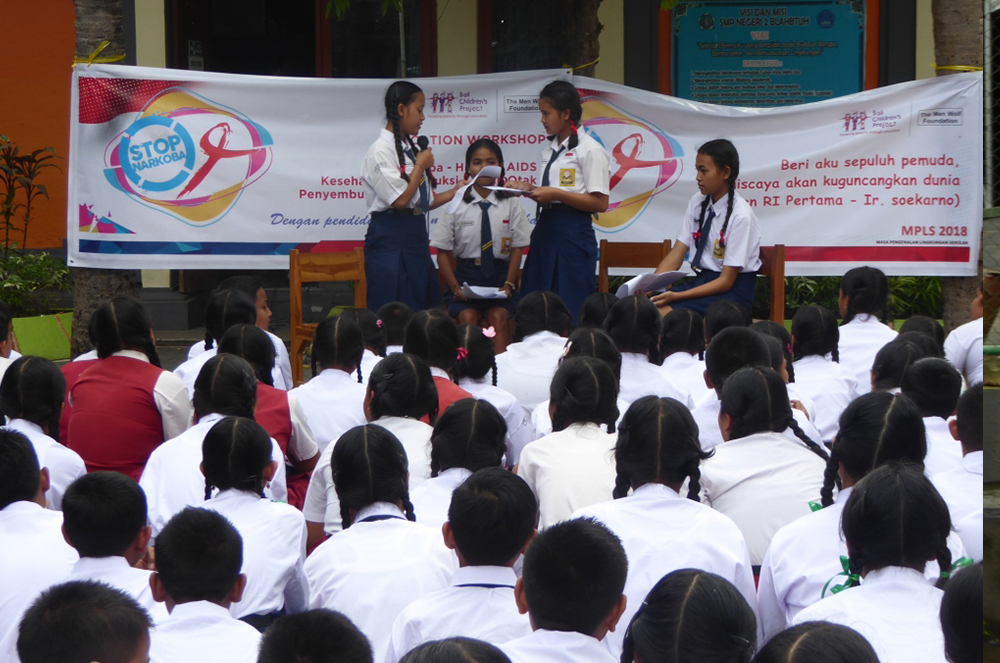Sex Education
Sex education isn’t in the formal curriculum, meaning many students go into adult life unequipped to make informed decisions. Our program changes that through capacity building within schools.


Sex Education Issues in Bali
Indonesia’s formal curriculum has no sex education modules. A taboo subject, sex is seldom discussed with teenagers. As a result, Bali continues to see high levels of sexual disease, unplanned pregnancies and more.
Bali also suffers from high level of HIV and AIDS, a disease that can be preventable with proper education. In the last 10 years, HIV and AIDS cases have risen from 9,773 in 2012, to 28,376 in 2022 [1].
Meanwhile, teenagers often have little understanding of the menstrual cycle or contraception, resulting in unwanted out-of-wedlock pregnancies (often resulting in pregnancies referred to as MBA – ‘Married by Accident’).
Furthermore, when a student is pregnant, both mother and father are expelled from school.


Preventative Education
Since 2012, Bali Children’s Project has provided sexual health education for schools across Bali.
Using our proven structure, in 2024 our Sex Education program will train teachers throughout Bali in how to deliver sexual education in their schools.
Working with health and education ministries in Bali, the program gives schools a sustainable way to implement sexual education.
Through training teachers in how to deliver sex education workshops, while also providing follow up support, the program provides life changing information to teenagers reaching sexual maturity.


How Does the Program Work?
The program follows a carefully planned structure to engage schools into delivering and maintaining sex education programs themselves.
- Engaging Bali’s health and education ministries to create mandatory teacher training workshops in all regencies of Bali
- Providing teacher training workshops for Bali’s 727 senior high schools
- Providing online and offline educational resources to help teachers across Indonesia teach about sex education
- Providing follow up monitoring, support and training for schools engaged in the program.
After a hiatus in 2023, Bali Children’s Project is bringing back a new-look sex education program modeled off of our successful Child Protection program. The 2024-25 program is kindly supported by the Mercury Phoenix Trust, COMO Uma Ubud andCOMO Shambala Ubud.
